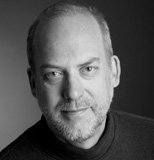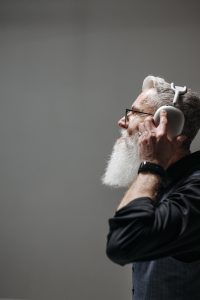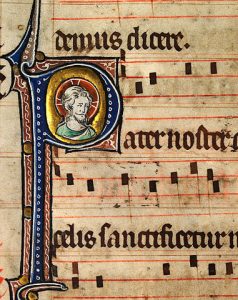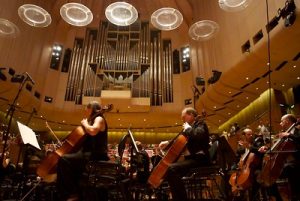 … but were afraid to ask. Hello, I’m Rick Phillips. I am a freelance writer, reviewer, teacher, speaker, broadcaster, podcaster and concert host, all in the field of classical music. I regularly host travel tours to European and US cities to attend classical music festivals and events. For 30 years I worked in a variety of locations and positions in the Music Dept. of CBC Radio, the Canadian public broadcaster. From 1994 to 2008 I produced and hosted Sound Advice, my own national radio show — a weekly guide to classical music and recordings. Before the CBC, I was a musician and university lecturer in music. Presenting adult education/music history and appreciation courses has been part of my professional life for 40 years. I’ve been offering music seminars at Toronto Pursuits for 20 years, and it remains a highlight of every summer.
… but were afraid to ask. Hello, I’m Rick Phillips. I am a freelance writer, reviewer, teacher, speaker, broadcaster, podcaster and concert host, all in the field of classical music. I regularly host travel tours to European and US cities to attend classical music festivals and events. For 30 years I worked in a variety of locations and positions in the Music Dept. of CBC Radio, the Canadian public broadcaster. From 1994 to 2008 I produced and hosted Sound Advice, my own national radio show — a weekly guide to classical music and recordings. Before the CBC, I was a musician and university lecturer in music. Presenting adult education/music history and appreciation courses has been part of my professional life for 40 years. I’ve been offering music seminars at Toronto Pursuits for 20 years, and it remains a highlight of every summer.
 At Toronto Pursuits 2024, I will be leading the seminar The Course of Music – a look into the hows and whys behind the world of classical music. Today, music is everywhere in our lives – in our homes and offices, shops, elevators and dentists’ chairs, entertaining us and distracting us from our everyday lives, creating moods and atmospheres.
At Toronto Pursuits 2024, I will be leading the seminar The Course of Music – a look into the hows and whys behind the world of classical music. Today, music is everywhere in our lives – in our homes and offices, shops, elevators and dentists’ chairs, entertaining us and distracting us from our everyday lives, creating moods and atmospheres.
It achieves this very well, but music is also a language, a powerful way to communicate ideas, concepts, emotion and expression. And although we hear music everywhere, we don’t often listen to it.
Listening is the premise behind our seminar The Course of Music — foreground listening instead of background. Throughout history, distinctive musical styles and trends developed due to influences like geography, politics, social cultures, and technology. With a better idea of how and why classical music developed, we have a deeper understanding of and love for the art.
 These are the kinds of questions we will be asking:
These are the kinds of questions we will be asking:
- How did classical music start and develop, and why?
- When did musical notation begin and how did it develop? Why are the tempo markings almost always in Italian?
- How did the system of major and minor keys in music develop and why? What’s the difference anyway?
- What’s a sonata, and are a symphony or concerto related? What about canon, fugue, rondo and cadenza? Are form and structure necessary?
- Why are there some 80 recordings available of “The Four Seasons” by Vivaldi? Which one is the “best” one?
- What does a conductor do except beat time?
- Is music a form of entertainment, or art — or both?
 Because everyone will come to our seminar with a different level of musical knowledge and experience, part of my job will be to create a level playing field to allow everyone to participate freely. There is no need to read or write music. A modified shared inquiry method will be in place. I will provide context, concepts and background, illustrated by many recorded musical examples, and then we’ll open up to comments and discussion from all. Leave preconceived notions, opinions and musical tastes behind, and arrive with an open mind and fresh ears.
Because everyone will come to our seminar with a different level of musical knowledge and experience, part of my job will be to create a level playing field to allow everyone to participate freely. There is no need to read or write music. A modified shared inquiry method will be in place. I will provide context, concepts and background, illustrated by many recorded musical examples, and then we’ll open up to comments and discussion from all. Leave preconceived notions, opinions and musical tastes behind, and arrive with an open mind and fresh ears.
There has long been a bothersome stigma about classical music — that those who understand it are more intelligent. Not true! I am living proof! If you’ve ever had questions about classical music but were reluctant to ask, this is the time. Our week together in Toronto will be an eye- and ear-opening voyage of discovery, adventure and reward. I hope you will join me!
Image credits: Man using headphones, Pavel Danilyuk on Pexels; Sydney Symphony Orchestra, Jason Tong on Flickr
